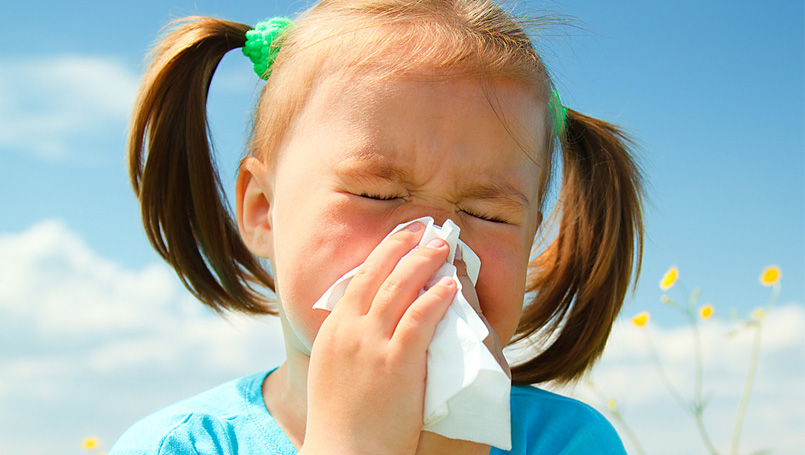
Spring is here, which means your children might be suffering from springtime allergies.
Allergic rhinitis, or hay fever, is a common problem in infants and young children; symptoms include a stuffy or runny nose, sneezing, itchy eyes, a sore throat and a cough that may worsen in the morning and at night.
If your child is suffering from springtime allergies, try these tips to keep symptoms at bay - and avoid the risk of an allergy developing into a secondary infection:
What are allergies?
An allergy is a reaction of the immune system to a specific substance. Our immune system responds to the allergen by releasing chemicals that trigger symptoms in the nose, lungs and throat.
What causes seasonal allergies?
Seasonal allergies are typically brought on by exposure to outdoor allergens like pollen and grass, but some children will be affected worse than others. Allergic rhinitis may run in your family; children with asthma or eczema can also be particularly susceptible to allergy-related discomfort.
The weather also plays a role; on a windy day, small, light grains of pollen - like those released by trees and weeds - can be carried more than 100 miles from their source.
How can I reduce my child’s exposure to allergens?
Pollen counts are generally higher between 10 a.m. and 4 p.m., so keeping your child indoors during those hours can help reduce allergy symptoms significantly. Using a high-efficiency particulate air (HEPA) filter on your furnace and air conditioner will help keep pollen particles out of your home.
Avoid using an outdoor clothesline during the spring; instead, dry clothes in the dryer. Take off shoes before coming into the house, and if you have a pet, wipe its fur before it comes inside.
“When it comes to children’s allergies, a little education goes a long way,” said Beaumont Children’s pediatric allergy and immunology physician Amy Marks, D.O. “Parents who understand what triggers the allergies are in a great position to work with a physician on an ideal treatment plan for their children.”
Dr. Marks works with children and their families at the Beaumont Pediatric Subspecialty Clinic in Troy and Royal Oak.
How should I treat my child’s allergy symptoms?
Over-the-counter antihistamines can be an effective approach to controlling your child’s spring allergies - but be sure to check the label for age recommendations and be prepared for possible drowsiness. Over-the-counter eye drops can also help alleviate discomfort from itchy, watery eyes.
If your child is suffering from persistent allergy symptoms, consider allergy testing - your child may have an undiagnosed allergy to food, dust, dander, and more.
